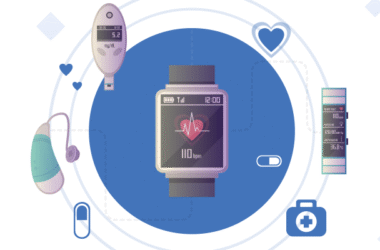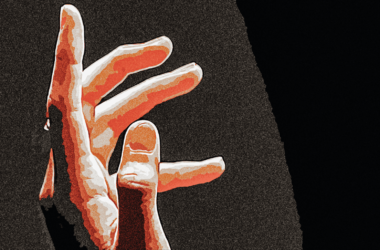Have you ever been in a situation where someone made you feel wrong about something you shouldn't have done? That is the actual meaning of a guilt trip. It's an exemplary move in emotional manipulation. Veering off in a strange direction leads you straight into feeling answerable for another person's feelings. Understanding the guilt trip meaning can help you recognize and navigate these situations more effectively.
Guilt trips are tied in with questioning your decisions and stacking you up with a feeling of responsibility. They can indeed play with your emotional navigation system. Thus, we should unload this emotional rollercoaster and figure out its effect. We can learn to navigate without getting sidetracked by recognizing the signs.
Let us delve into the signs, types, and effects of emotional manipulation alongside coping techniques. Knowing how guilt trips operate gives us the strength to stick to our opinions and refuse to let the emotional baggage of others’ guilt.
Signs of a Guilt Trip
A guilt trip can happen both intentionally and unintentionally, and it's essential to recognize that there's a possibility we have guilt-tripped others in the past as well. Identifying guilt-tripping behavior may not always be straightforward, as it can manifest in subtle ways that are difficult to detect.
However, there are some key signs to be aware of, which include:-
- Making remarks that imply you haven't worked as hard as they have.
- Raising previous oversights or blunders that you've made.
- Reminding you of favors they have done for you in the past.
- Showing outrage yet denying any issues when confronted.
- Giving you the silent treatment or refusing to communicate.
- Showing dissatisfaction through body language, tone of voice, or facial expressions
- Suggesting that you owe them something
- Engaging in passive-aggressive behavior
- Making sarcastic remarks about your efforts or progress
It's crucial to remember that these patterns of indirect communication can occur in any interpersonal interaction, but they are most common in intimate emotional relationships.
Guilt trips and gaslighting are two different phenomena, even though they have certain similarities.
It's essential to be aware of these elements in our relationships and to take appropriate action if there is a frequent or toxic conversation about them, emphasizing the importance of understanding the guilt trip meaning for effective communication.
Gaslighting vs. Guilt trips
Both play with emotions, but they operate in slightly different ways. Is guilt-tripping a form of gaslighting? Guilt trip meaning depicts when you feel responsible for another person's sentiments or actions, kind of like an emotional leverage move.
On the other hand, gaslighting screws with your impression of the natural world, making you question your considerations and recollections. It's like a psychological game where the other individual attempts to make you question your sanity. Although in different ways, both are rough.
Types of Guilt Tripping
Guilt trips come in a variety of forms, each designed to evoke a specific response or accomplish a specific goal. Recognizing these tactics aids in navigating guilt-trip meaning and responding adeptly to them.
Moral education
While addressing guilt trips, developing a comprehension of genuine moral choices is significant. Empowering self-reflection and compassion enables people to explore activities aligned with their values. This includes knowing the difference between credible moral choices and those impacted by emotional coercion, discouraging the role of a guilt-tripper.
By doing so, a sense of trustworthiness and moral integrity is fostered, promoting a more authentic and principled approach to ethical decision-making.
Manipulation
Guilt trips frequently act as an instrument for manipulation, constraining people into actions in opposition to their desires. Perceiving this dynamic includes figuring out emotional coercion, the significance of setting boundaries, and cultivating decisiveness.
People have the freedom to make genuine choices that align with their values without any influence.
Conflict Avoidance
Some might fall back on guilt trips to evade head-on confrontation, utilizing emotional manipulation to accomplish their desires without tending to the core issue. Promoting assertiveness, open communication, and conflict resolution skills are all necessary for recognizing this pattern.
Encouraging direct dialogue fosters healthy resolution, preventing the use of guilt as a substitute for genuine confrontation.
Elicit Sympathy
Guilt-tripping can manipulate others by portraying the guilt-inducing individual as a victim, aiming to elicit sympathy. Recognizing this tactic involves promoting empathy while encouraging individuals to assess situations critically.
This ensures that genuine compassion isn't exploited, fostering a balanced understanding of emotional dynamics and personal responsibility.
Impact of Guilt Trips
Invoking guilt as a motivation for behavior change can have a variety of effects. Regardless of whether it is used purposefully, it blocks open communication and relational bonds. The quick repercussions of this kind of hidden mental impact incorporate hindering consequences for connections.
Research demonstrates that guilt trips, or guilt-tripping examples, can strain intimate connections. People who are hurt by their partner's criticism tend to use their distress to feel guilty and want to be reassured. Consequently, instigating guilt may achieve the desired outcome but at the expense of impaired trust and feelings of manipulation.
Moreover, guilt trips can encourage getting through hatred within relationships—the inconvenience of aversive responsibility and manipulation frequently prompts hatred. While a separate example may not significantly influence a relationship, repeated guilt trips can breed bitterness. Consistent use of guilt as a tool for coercion may diminish intimacy, diminish emotional closeness, and sow seeds of resentment.
Besides, research proposes that a guilt-influenced methodology may backfire. While low-level responsibility can prompt action, excessive guilt often leads to “reactance.” This psychological phenomenon compels individuals to act in opposition to the desired behavior, ultimately undermining the intended outcome.
Additionally, excessive guilt is linked to various mental health conditions, such as anxiety, depression, and obsessive-compulsive disorder. Subjects of guilt trips may experience heightened negative emotions and symptoms, potentially contributing to the development of a persistent guilt complex. Over time, guilt can lead to feelings of shame, influencing self-perception and fostering social withdrawal.
How to Cope With Guilt Tripping?
Coping with guilt-tripping requires a mix of confidence, emotional regulation, and clear communication. The following are a few strategies to oversee and overcome the impacts of guilt trips:
- Recognize the signs: Be aware of the strategies used to instill responsibility.
- Stay calm: Try not to allow feelings to direct your reaction.
- Reflect on Your Actions: Think about whether the message that makes you feel guilty is valid.
- Communicate with Power: Communicate your feelings and thoughts clearly and calmly.
- Set boundaries: Clarify that you won't be controlled.
- Practice self-care: Engage in activities that boost your mood and confidence.
- Seek support: Talk to friends or family about what you're experiencing.
- Focus on the present: Don't let past guilt dictate your current actions.
- Challenge Unrealistic Expectations: Understand that you can't please everyone.
- Seek Professional Help: If guilt trips are affecting your mental health, consider consulting an expert.
Conclusion
If you experience guilt-tripping in your relationship, consult your healthcare provider or a mental health professional. Right treatment, such as psychotherapy or medications, helps manage symptoms and improve quality of life.
Treatments work towards identifying and changing the negative thought processes and cognitive distortions that fuel guilt. Your therapist's assistance will help you recognize the signs of a guilt trip. They can recommend strategies to manage emotional manipulation.
FAQs
1. Is crying a form of guilt-tripping?
Nonverbal communication methods like crying loudly, going speechless, staying disconnected, or maintaining distance can often be considered as guilt tripping examples. However, crying is not always a form of guilt-tripping.
2. What is the psychology behind guilt trips?
Guilt trips are psychological abuse. It is often rooted in a desire for attention or reassurance from a manipulative individual. They try to make another person feel guilty if they feel bad about their actions.
3. Is guilt-tripping a red flag?
Yes, guilt-tripping is a red flag. Guilt trips are a manipulative tactic of the dominate partner in a relationship. These people aim to gain power and control over the emotionally weaker partner. A healthy relationship grows on feelings of mutual understanding and respect, not blame and guilt.
4. Is guilt-tripping the same as expressing emotions?
No, guilt trip meaning varies from expressing emotions. It intends to make other people feel bad about themselves. It can be in the form of criticism, playing the victim, or offering a cold shoulder.












